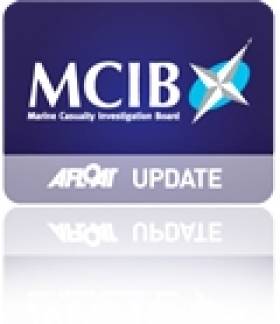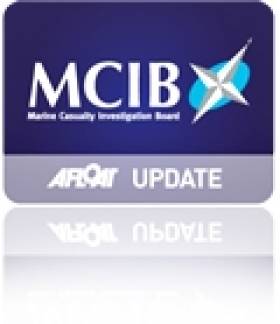Displaying items by tag: CPR
#MCIB - The decision to set out in poor weather, coupled with limited safety instruction, led to the tragic death of a Romanian angler on Lough Mask last summer, according to a report by the Marine Casualty Investigation Board (MCIB).
Mircea Ungur drowned after the angling boat he was in capsized in choppy waters brought on by squalling Force 8 winds on the afternoon of 8 May 2011.
Ungur had a tracheostomy tube in his throat resulting from a previous battle against throat cancer, and drowned after taking in water through this tube, the MCIB concluded. It was also found that most of his companions and the guide knew nothing about the tube.
At the time of the incident, Ungur had been on an angling holiday in Co Mayo with five colleagues accompanied by a fishing guide. On the morning of 8 May the group set out from Cappaduff in Tourmakeady on two boats, following a brief discussion about fishing and safe departure from the pier.
Winds were already reaching Force 4-6 when the group departed and sought a sheltered area of the lough to fish. After lunch winds had picked up to Force 8 and the guide signalled for a return to Tourmakeady.
At around 1.5km from the pier at Cappaduff, a wave swamped the leading boat that contained Ungur, a companion and the guide. All three on board, who were wearing buoyancy aids, went into the water.
Ungur was the first taken on board the other boat after some 10 minutes in the water. He was not moving or communicating with the others, and CPR was not administered until the boat reached the shore 20 minutes later. Ungur was pronouced dead just before 3pm.
The report concluded that the group had departed despite reservations among them about the poor weather, which had been correctly forecast that day. There was also little discussion with the anglers about their level of boating experience, the weather, or any disabilities that would affect their safety on the water.
The MCIB recommended that a full safety briefing should be given to all those hiring angling boats. It also urged the enforcement of safety regulations and certification for recreational water craft.
The full report is available to download as a PDF from the MCIB website HERE.
The report by the Marine Casualty Investigation Board (MCIB) into the loss of a kayaker in Castletownshend last year has found the death was caused by hypothermia and heart failure due to a pre-existing condition.
Didier Heneault, 56, died while kayaking with his wife Margaret near Horse Island, after his kayak overturned in choppy water.
The French couple, who were experienced kayakers, had set off from the League near Raheen Town in Co Cork on the morning of 30 May 2010, paddling south-east.
On the western side of Horse Island, Mrs Heneault turned and saw that her husband was in thw water about 10m from his kayak. She tried to assist him in climbing out of the water back into the kayak but was unsuccessful.
Mrs Heneault used a safety rope to keep her husband afloat, but after 10 minutes he became unresponsive.
Some hours later passing kayakers heard Mrs Heneault's calls for help and assisted in towing the couple back to shore at Horse Island, where they gave Mr Heneault CPR. They were joined shortly after by the Baltimore Inshore Lifeboat and the Toe Head coastguard unit.
Mr Heneault was transferred to a waiting ambulance at Castletownshend pier where he was treated by paramedics before being taken to Cork University Hospital. There he was pronounced dead at 4.50pm.
The report into the incident by the MCIB said the post-mortem gave the cause of death as cardiac failure due to hypertensive cardiomyopathy following immersion in cold water and associated hypothermia, with a medical history of hypertension.
The report also recommended that lifejackets should be used instead of buoyancy aids when offsore kayaking, where the risk of capsizing is greater. A lifejacket of 150 Newtons or more would have kept Mr Heneault's head above water at all times, it said.































































